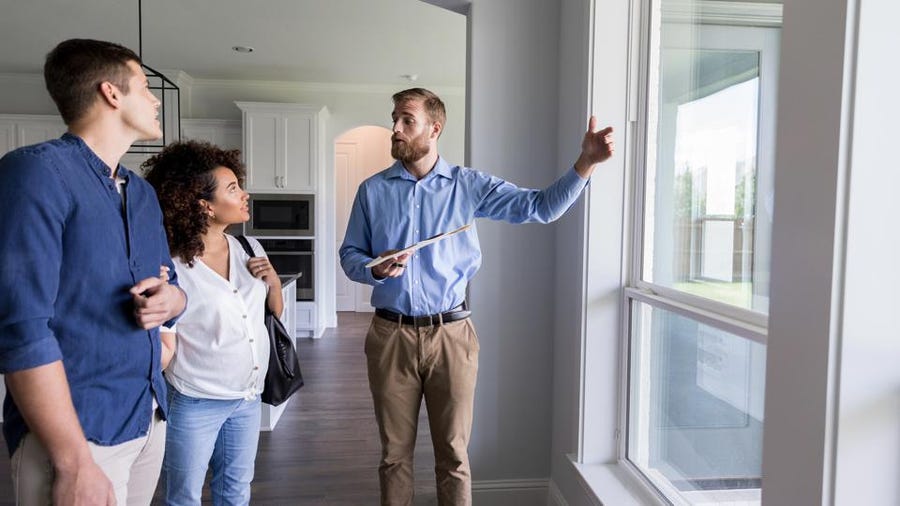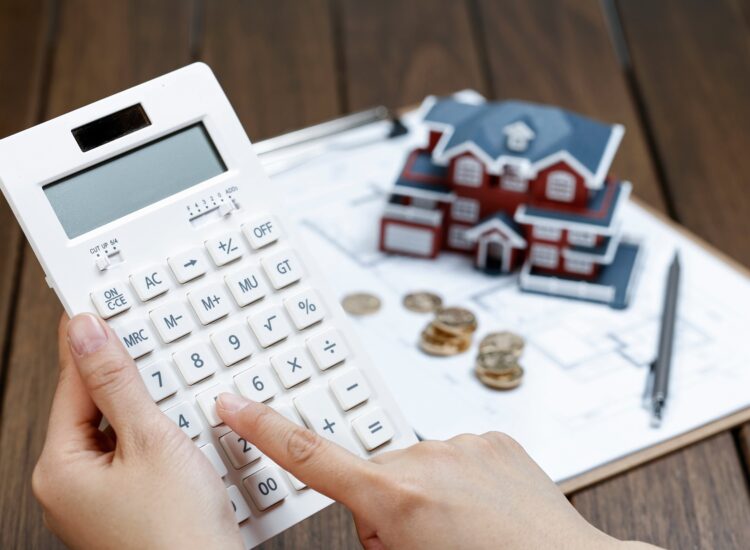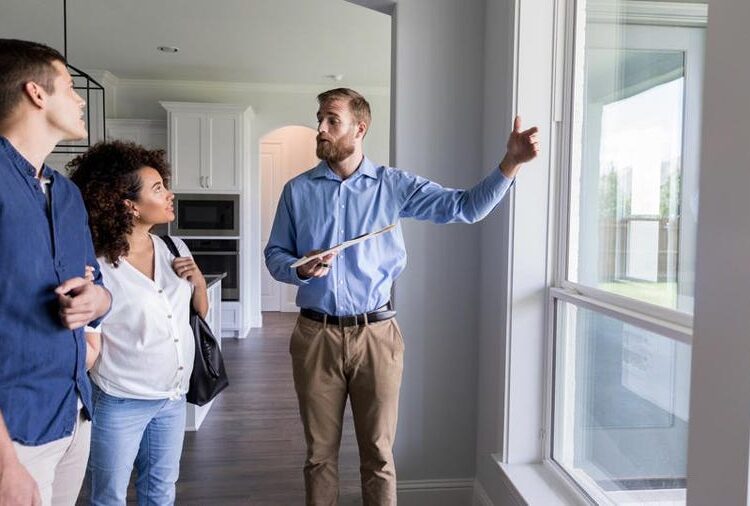Selling a house independently can seem overwhelming, but a well-structured approach can lead to significant savings. This guide provides a comprehensive roadmap for how to sell a house without a real estate agent, covering every stage from initial preparation to finalizing the sale. We’ll explore essential steps to maximize your return while maintaining control over the process.
Toc
- 1. Preparing Your Home for Sale
- 2. Pricing Your Home Right: A Critical Step
- 3. Related articles 01:
- 4. Marketing Your Property: Getting the Word Out
- 5. Handling Showings and Offers: Keeping It Professional
- 6. Related articles 02:
- 7. Navigating Paperwork and Legal Aspects
- 8. Closing the Sale: Final Steps to Completion
- 9. Pros and Cons of Selling Without a Realtor
- 10. Conclusion
Preparing Your Home for Sale

Decluttering and Deep Cleaning
The first step in how to sell a house without a real estate agent is to make your home inviting to potential buyers. Start by decluttering and deep cleaning every room. An organized and spotless space allows buyers to envision their lives in your home. Remove personal items, excess furniture, and unnecessary decor. Consider creating a checklist that covers all areas, including closets and storage spaces.
Research shows that homes that are clean and well-maintained often sell for higher prices and spend less time on the market. A tidy home not only enhances its appearance but also signals to buyers that the property has been well cared for.
Curb Appeal Enhancements
Don’t forget the exterior of your home—first impressions matter! Boost your curb appeal by maintaining your lawn, trimming hedges, and adding colorful plants or flowers. A fresh coat of paint on the front door can create a welcoming entrance. Make sure that the pathway to your front door is clear and clean. Small outdoor upgrades, like new house numbers or outdoor lighting, can make a significant impact.
Essential Repairs and Updates
Next, focus on any necessary repairs and consider cost-effective updates that can boost your home’s value. Concentrate on essential repairs, such as fixing leaky faucets, patching drywall, or replacing broken tiles. Minor updates, like applying a fresh coat of neutral paint or updating light fixtures, can significantly improve your home’s appeal.
It’s essential to know what not to fix when selling a house. Overly expensive renovations that do not yield a reasonable return on investment may not be worth the effort. Instead, prioritize high-impact areas such as the kitchen and bathrooms, where buyers often look for updated features.
Smart Home Features
Modern buyers appreciate smart home features. Consider investing in smart thermostats, security systems, or smart lighting. These upgrades can enhance your home’s appeal and signal that it’s move-in ready for tech-savvy buyers. Additionally, highlighting these features in your marketing materials can set your home apart in a competitive market.
Home Staging Tips
Home staging is another effective way to make your home more appealing. This involves rearranging furniture and decor to highlight your home’s best features. You can stage your home on a budget by utilizing existing furniture and decor while adding a few inexpensive touches, such as fresh flowers or strategically placed mirrors to create a sense of space.
Statistics indicate that staged homes often sell faster and for a higher price compared to unstaged homes. If the process feels overwhelming, consider consulting with a professional stager to guide you through it.
Pricing Your Home Right: A Critical Step
Conducting a Comparative Market Analysis (CMA)
One of the most challenging aspects of selling a home independently is pricing it correctly. A comparative market analysis (CMA) is essential in determining a fair market price. Look for comparable homes in your neighborhood that have sold recently and analyze their features and sale prices. Pay attention to details such as square footage, number of bedrooms and bathrooms, and the condition of the homes.
However, relying solely on a CMA can be misleading. Factors like recent interest rate hikes (e.g., the Federal Reserve’s increases throughout 2022 and early 2023) significantly impact buyer affordability and thus, market value. A CMA reflecting only pre-hike sales data might overestimate your home’s price. To counter this, consider consulting recent local real estate market reports from reputable sources like your local MLS or a real estate data provider, which often include analyses of market trends and adjustments due to economic factors. Alternatively, you could engage a real estate appraiser for a professional opinion, although this incurs additional costs.
Setting a Competitive Price
Once you have completed your CMA, set a price that attracts buyers while maximizing your profit. Pricing too high can scare away potential buyers, leading to a longer time on the market, while pricing too low can result in a loss of potential profit. Aim to strike a balance that reflects both your home’s value and the current market demand.
Be prepared to adjust your price based on market feedback. If your home isn’t attracting interest, it may be necessary to lower the price to reignite buyer interest.
2. https://namtienphong.vn/mmoga-can-i-do-real-estate-part-time-a-guide-for-parents/
3. https://namtienphong.vn/mmoga-how-to-negotiate-real-estate-commission-a-sellers-guide/
4. https://namtienphong.vn/mmoga-what-is-a-crm-in-real-estate-a-guide-for-agents/
5. https://namtienphong.vn/mmoga-how-to-get-clients-in-real-estate-a-proven-guide-for-new-agents/
Negotiation Strategies
When offers start coming in, it’s vital to evaluate each one carefully. Understand the terms and contingencies of each offer, and be prepared to negotiate. A well-informed approach to negotiations can make a significant difference in the final sale price.
Negotiations are a crucial part of the process. Understanding negotiation tactics, such as anchoring (setting a high initial price) and bracketing (proposing a range), can benefit sellers. However, some sellers might adopt a “take-it-or-leave-it” approach, rejecting all offers below their asking price. While this maintains control, it can significantly prolong the selling process, potentially missing out on a reasonable offer. A more flexible approach involves counter-offering strategically, demonstrating a willingness to compromise while protecting your financial interests.
Marketing Your Property: Getting the Word Out
Listing on the MLS
A crucial step in how to sell a house without a real estate agent is to list it on the Multiple Listing Service (MLS). This platform significantly increases your home’s exposure to potential buyers. You can work with a flat-fee MLS service that allows you to list your property without needing a full-service agent.
While the MLS is crucial, its effectiveness depends on compelling visuals. Professional photography is no longer optional; high-quality images and virtual tours significantly increase buyer interest. Studies have consistently shown that listings with professional photos receive substantially more views and offers compared to those with amateur photos. For instance, a 2023 study by the National Association of Realtors (NAR) indicated a strong correlation between professional photos and quicker sale times. Conversely, relying solely on amateur photos might limit your reach and appeal to serious buyers.
Consider also leveraging social media platforms beyond Facebook Marketplace, like Instagram and TikTok, using visually appealing content tailored to each platform’s audience. Engaging posts or stories that showcase your home’s features can attract a wider audience.
Utilizing Online Platforms and Social Media
In today’s digital age, utilizing online platforms and social media is vital in marketing your home effectively. Websites like Zillow and Facebook Marketplace can help you reach a vast audience. When creating your listing, focus on writing a compelling description that highlights your home’s unique features.
High-quality photographs are essential in making your listing stand out. Consider hiring a professional photographer to capture your home in the best light, as listings with professional images often receive more views and leads.
Professional Photography and Virtual Tours
Investing in professional photography and possibly offering virtual tours can significantly enhance your marketing efforts. Buyers are more likely to express interest in homes that present well visually. A virtual tour allows potential buyers to explore the property remotely, which can be particularly appealing in today’s market.
Handling Showings and Offers: Keeping It Professional

Scheduling Showings
Once your home is listed, the next step is to schedule showings. Flexibility is key—being available for showings at various times can increase the number of potential buyers who see your home. Consider using an online scheduling tool to help manage appointments efficiently.
Preparing your home for showings is equally important. Ensure it is clean, well-lit, and inviting. Create a pleasant atmosphere by opening windows for natural light or lighting a scented candle before a showing.
Evaluating Offers
When offers start coming in, take the time to evaluate each one carefully. Look beyond the offered price and consider the terms, contingencies, and the buyer’s financial qualifications. Understand the implications of each offer and what it means for your overall goals.
Be prepared for negotiations. If an offer doesn’t meet your expectations, don’t hesitate to counter-offer. Clarity on your minimum acceptable price and terms will help you navigate this process smoothly.
Managing the Necessary Paperwork
One of the more challenging aspects of selling without a realtor is managing the required paperwork. Be prepared to gather essential documents such as the Purchase and Sale Agreement, property disclosure forms, and any necessary state-specific documents.
A common question arises: “Do I need a lawyer to sell my house without a realtor?” While it’s possible to sell without legal assistance, having a real estate attorney can help navigate complex legal issues and ensure compliance with all regulations. Having professional guidance can be particularly beneficial for first-time sellers who may be unfamiliar with the necessary legalities.
1. https://namtienphong.vn/mmoga-how-to-get-clients-in-real-estate-a-proven-guide-for-new-agents/
2. https://namtienphong.vn/mmoga-what-is-a-crm-in-real-estate-a-guide-for-agents/
4. https://namtienphong.vn/mmoga-can-i-do-real-estate-part-time-a-guide-for-parents/
5. https://namtienphong.vn/mmoga-how-to-negotiate-real-estate-commission-a-sellers-guide/
What Paperwork Do I Need to Sell My House Without a Realtor?
When selling your home independently, you’ll need to prepare several documents, including:
- Purchase and Sale Agreement: A legal document outlining the terms of the sale.
- Property Disclosure Forms: Documents that disclose any known issues with the property.
- Title Documents: Proof of ownership and any liens against the property.
- Inspection Reports: If applicable, providing transparency to potential buyers.
- State-Specific Forms: Certain states have additional requirements for real estate transactions.
Do I Need a Lawyer to Sell My House Without a Realtor?
While hiring a lawyer is not mandatory, it can be incredibly helpful. A real estate attorney can guide you through the legal aspects of the sale, ensuring that all documents are correctly prepared and filed. This is especially important if you’re asking yourself, “How hard is it to sell a house without a realtor?” Legal complexities can arise, and having an expert on your side can mitigate risks.
Understanding Massachusetts-Specific Regulations
If you’re selling your home in Massachusetts, be aware of state-specific regulations that apply to For Sale By Owner (FSBO) transactions. Familiarize yourself with local laws regarding property disclosures, lead paint regulations, and any other requirements specific to your area.
Closing the Sale: Final Steps to Completion
Understanding the Closing Process
The closing process involves several steps, including final walkthroughs, signing documents, and transferring ownership. It’s crucial to be well-prepared for this stage, as it is where many issues can arise if not handled correctly.
Ensure you have all necessary documentation in order, including the deed, bill of sale, and any certificates required by your state. The closing typically occurs at the buyer’s lender’s attorney’s office, and if you have legal representation, they will usually handle this on your behalf.
Post-Sale Tasks
After the sale is finalized, there are several tasks to complete, such as forwarding your mail, transferring utilities, and ensuring a smooth transition for the new homeowner. These tasks, while minor, are essential for closing out your responsibilities as a seller.
Pros and Cons of Selling Without a Realtor

Advantages of FSBO
One of the primary advantages of selling your home without a realtor is the potential for significant savings on commission fees. On average, selling without an agent can save you around 2.5% to 3% on the listing agent commission. This savings can be substantial, especially in higher-priced markets.
Another benefit is the level of control you maintain throughout the process. As an FSBO seller, you interact directly with potential buyers, allowing for more personal communication and negotiations.
Disadvantages to Consider
However, there are challenges to consider as well. Selling without a realtor often requires a significant time commitment, as you will be responsible for all aspects of the sale, from marketing to negotiations. Additionally, the lack of professional guidance can lead to mistakes, especially regarding pricing and paperwork.
Legal risks may also arise without proper knowledge of the process, making it advisable to seek legal assistance when necessary. Understanding the pros and cons of selling a house without a realtor is crucial in deciding whether this route is right for you.
Conclusion
Selling your house without a realtor can be a rewarding experience, offering significant cost savings and control. However, it requires careful planning, diligence, and a proactive approach to navigating the process. By following the steps outlined in this guide, first-time home sellers can confidently navigate the FSBO landscape and achieve their home-selling goals. Consider contacting a real estate attorney for assistance with the legal aspects of the sale. Remember, while you can save on commissions, be prepared to invest time and effort in managing all aspects of the sale yourself.









